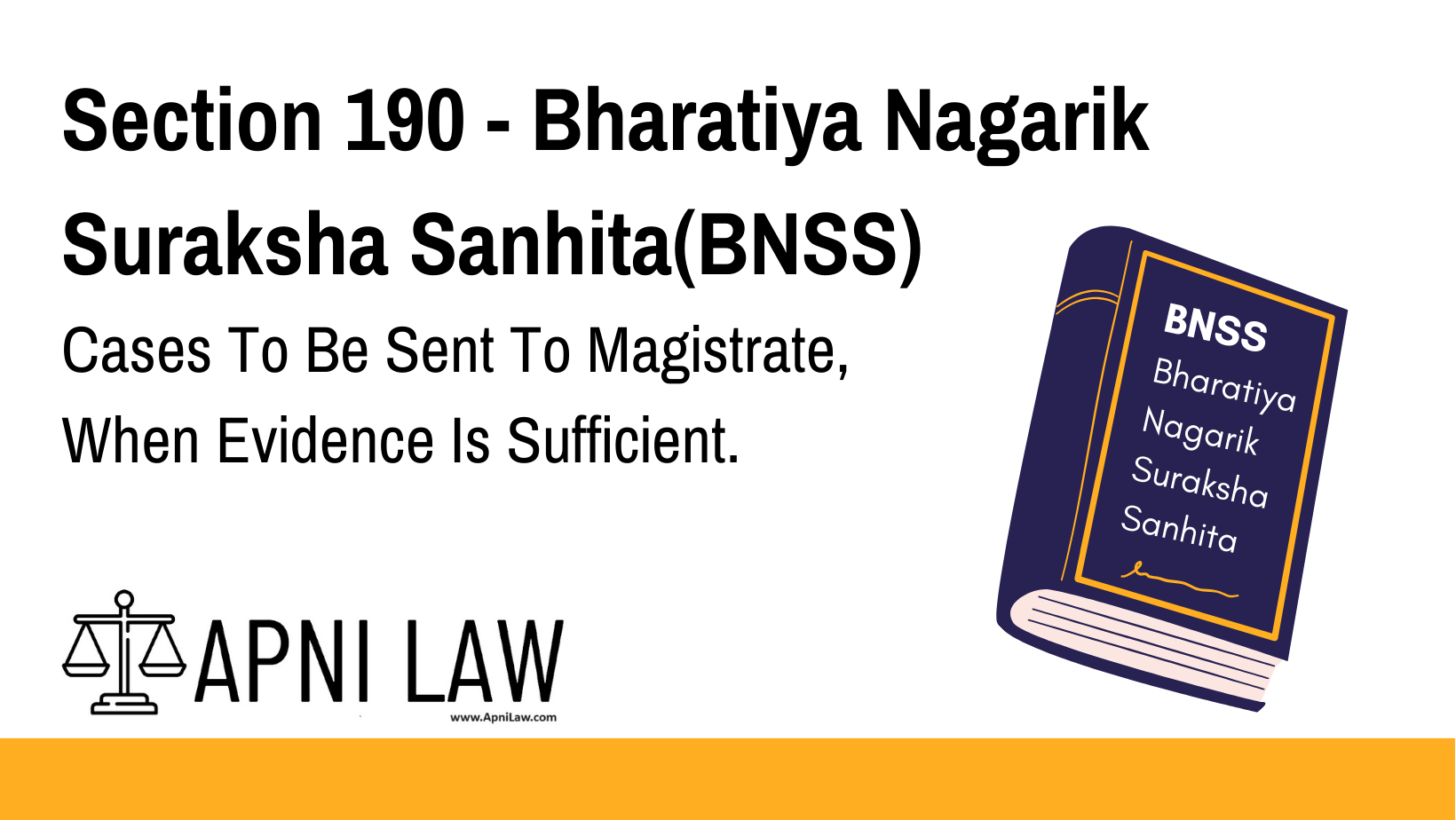Code
(1) If, upon an investigation under this Chapter, it appears to the officer in charge
of the police station that there is sufficient evidence or reasonable ground as aforesaid,
such officer shall forward the accused under custody to a Magistrate empowered to take
cognizance of the offence upon a police report and to try the accused or commit him for trial,
or, if the offence is bailable and the accused is able to give security, shall take security from
him for his appearance before such Magistrate on a day fixed and for his attendance from
day to day before such Magistrate until otherwise directed:
Provided that if the accused is not in custody, the police officer shall take security
from such person for his appearance before the Magistrate and the Magistrate to whom
such report is forwarded shall not refuse to accept the same on the ground that the accused
is not taken in custody.
(2) When the officer in charge of a police station forwards an accused person to a
Magistrate or takes security for his appearance before such Magistrate under this section,
he shall send to such Magistrate any weapon or other article which it may be necessary to
produce before him, and shall require the complainant (if any) and so many of the persons
who appear to such officer to be acquainted with the facts and circumstances of the case as
he may think necessary, to execute a bond to appear before the Magistrate as thereby
directed and prosecute or give evidence (as the case may be) in the matter of the charge
against the accused.
(3) If the Court of the Chief Judicial Magistrate is mentioned in the bond, such Court
shall be held to include any Court to which such Magistrate may refer the case for inquiry
or trial, provided reasonable notice of such reference is given to such complainant or
persons.
(4) The officer in whose presence the bond is executed shall deliver a copy thereof to
one of the persons who executed it, and shall then send to the Magistrate the original with
his report.
Explanation
This section outlines the procedures to be followed by a police officer after completing an investigation under the BNSS. It specifies the actions the officer must take if they believe there is sufficient evidence to proceed with a case.
- If there is sufficient evidence: The officer must send the accused person under custody to a Judicial Magistrate, who will either try the case or commit the accused for trial.
- If the offense is bailable: The officer can take security from the accused, ensuring their appearance before the Judicial Magistrate at a specific date and time.
- If the accused is not in custody: The officer can still take security to ensure their appearance in court.
- Supporting evidence: The officer must also send any relevant evidence, such as weapons or other articles, to the Judicial Magistrate.
- Complainant and witnesses: The officer must obtain bonds from the complainant and any witnesses they deem necessary to ensure their appearance in court.
- Notice of reference: If the case is referred to a different court, all parties must be notified.
- Documentation: The officer must provide a copy of the bond to the person who signed it and send the original to the Judicial Magistrate.
Illustration
Imagine a police officer has completed an investigation into a case of theft. After reviewing the evidence, the officer believes there is sufficient grounds to proceed.
- Scenario 1: The accused is arrested. The officer forwards the accused to the Judicial Magistrate for trial.
- Scenario 2: The offense is bailable, and the accused can provide a security bond. The officer takes the bond, ensuring the accused appears in court on a specific date.
In both cases, the officer must also send the relevant evidence to the Judicial Magistrate and obtain bonds from the complainant and any witnesses who may be needed for the trial.
Common Questions and Answers
Q: What happens if the accused fails to appear in court?
A: If the accused fails to appear in court after providing a security bond, the court can issue a warrant for their arrest and may forfeit the security amount.
Q: Can the Judicial Magistrate refuse to accept the case?
A: The Judicial Magistrate can refuse to accept the case if they believe the evidence is insufficient or there is a lack of reasonable grounds for prosecution.
Q: Who decides whether the offense is bailable or non-bailable?
A: The specific laws and procedures governing bailable offenses are outlined in the BNSS and other relevant legislation.








